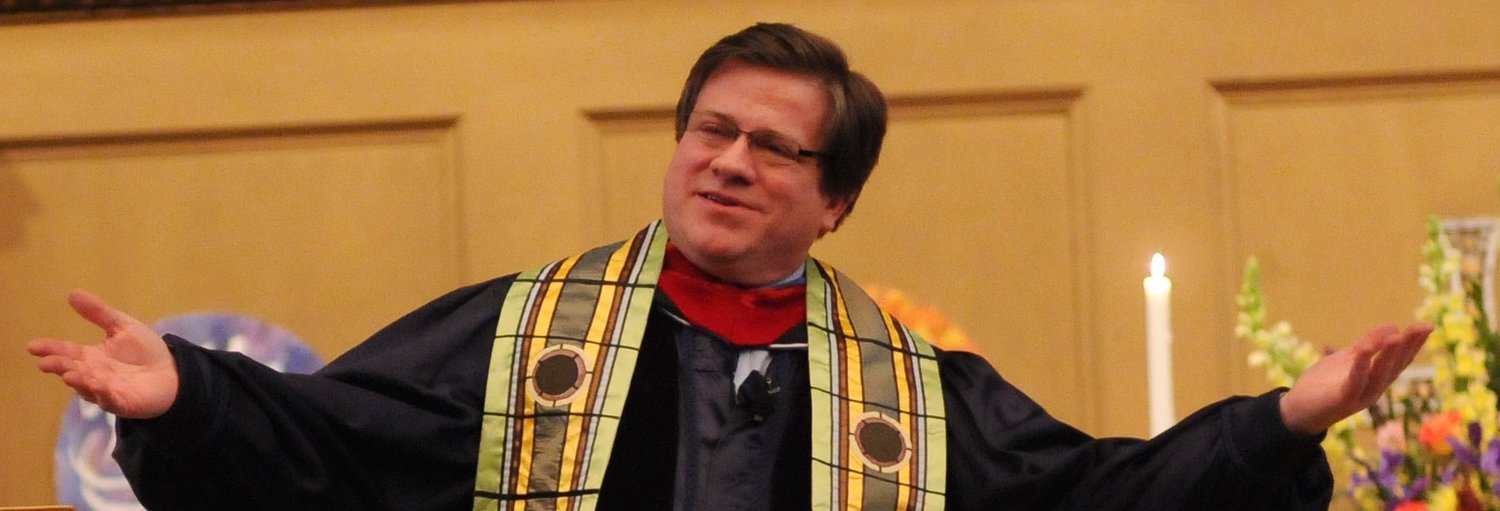Outstretched Wings of the Spirit--Day Forty-six
The Forty-sixth Day
(Saturday, April 20, 2019)
Laughter that Makes People Thin
“What makes one feel at home in the universe is one’s beliefs about the universe, and the part and place of human life in it. This system of beliefs is the foundation of one’s sense of inner security, and is the basis for the organization of oneself and one’s characteristic behavior. When these beliefs are disordered or nullified, life loses its order and meaning. . . .
“A transition period in religion is a very difficult period for human living. There are in commotion many factors and trends which confuse us, and prevent us from feeling at home. . . . These are further complicated because they do not bear upon any two individuals in an identical way. Therefore the reactions of those whose order of being and living has been threatened or disrupted, vary markedly. Some lose meaning, and hence lose the self. Others resist, but with devitalizing misgivings in their hearts and minds. Some, the pseudo-Stoics, that is, the cynics, indulge in the type of laughter that makes thin people. Certain groups keep on with what they have for want of something better, though aware of dry rot and lamed by a sense of futility or an apologetic spirit. A few courageous ones dare to say they do not know, and hold themselves open to all other opinion. Some try to build up a system deliberately, with the assortment of materials at hand. Many shut their eyes tight and turn back to the illusory security of the old dogmatically formulated creeds. There are those, also, who live in shelters and so feel only enough of the cross-currents and rip-tides to confuse these propulsions toward religious construction with wicked temptations. They interpret their impact as tests for consecrated resistance. These are probably the least distressed, for nothing can give sight to their blind faith; they believe devoutly that they live blessedly. Numerous ones do not think, managing this through keeping very active in carious matters felt to be ‘good; causes. Some are self-seeking experimenters, trying first this and then that. But there are, over and above all these, certain searchers in the field who, while holding their findings to the discipline of rigid tests, are exploring with relatively open minds the possibilities of meaning and value wherever these seem likely to be found.
“There is great need today for the same type of objective, critical, intelligent, creative, persistent investigation into the realities which concern religion as has been given to the more restricted inquiries in the realm of the sciences. . . . Religion is the most important way that humans have tried by which to organize the order of life. This way is itself now disorganized, and is being questioned and brought under examination. Whether out of the resulting confusion there will come a period of the chaos of mere ruin, or sort of Dark Ages of Futility, or a period of vigorous growth which will compel intelligent, creative control, is a question of social evolving. Certainly the soil around many of the roots of religion is giving evidence of the sturdy thrusts of living force.” (Wieman & Wieman)
In our age, religion itself is undergoing its own “via dolorosa,” a crucifixion and a resurrection of rebirth in a new more pertinent garb, capable of speaking powerfully to the modern scientific age. But this rebirth and resurrection can become significant only as it takes place in and through us. (Donald Szantho Harrington)
Prayer
God, help us to understand that even the Valley of the Shadow of Death is not frightening, for it is part of Your Plan that all which lives must die to make way for the new and nobler day and life. Not thatwe live and die, but how—is what makes the difference. Jesus has shown us the way, the truth and the life. Help us to take up our cross and follow him. Amen.
Hymn
When my love to God grows weak,
When for deeper faith I seek,
Then in tho’t I go to thee,
Garden of Gethsemane.
There I walk amid the shades,
While the lingering twilight fades;
See that suffering, friendless one
Weeping, praying, there alone.
When my love for all grows weak,
When for stronger faith I seek,
Hill of Calvary, I go
To thy scenes of fear and woe;
There behold his agony
Suffered on the bitter tree;
See the anguish, see the faith,
Love triumphant still in death.
Then to life I turn again,
Learning all the worth of pain,
Learning all the might that lies
In a full self-sacrifice.
—John Reynell Wreford (Hymns of the Spirit, no. 189)
(Hymns for the Celebration of Life, no. 313)
Donald Szantho Harrington wrote the Lenten meditation manual Outstretched Wings of the Spirit: On Being Intelligently and Devotedly Religiousbased on the theology of Henry Nelson Wieman and Regina Westcott Wieman. It was published by the Unitarian Universalist Association in 1980.
